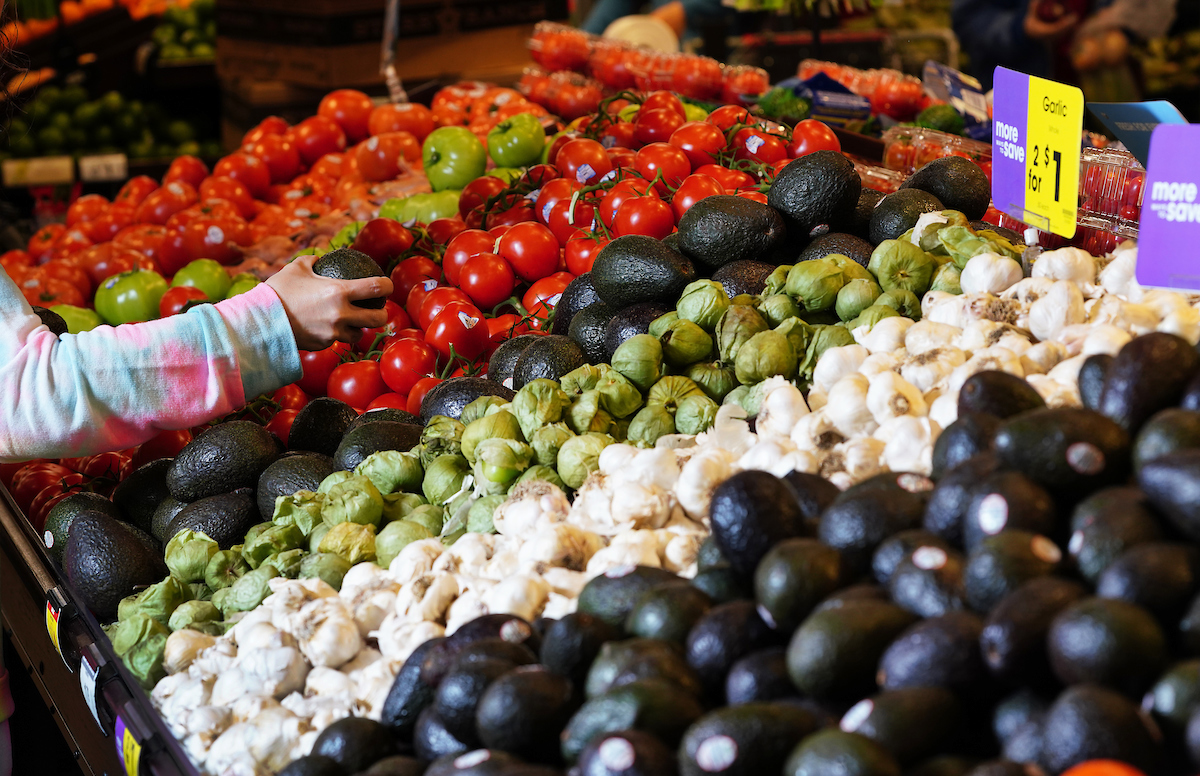Changing food waste one grocery store trip at a time
If there was one weekly habit you could change to assist in reducing global food waste, would you consider adopting it?
Brenna Ellison, associate professor and undergraduate program coordinator of agricultural economics, said changing grocery shopping habits has been identified as one way to reduce household food waste, one of the most wasteful nodes within the supply chain. The change needed isn’t to shop less, but rather to grocery shop more frequently.
Shopping more often for groceries, or maintaining a just-in-time (JIT) food inventory, allows households to meet immediate, short term needs for cooking instead of attempting to plan out one to two weeks' worth of meals with one large trip, Ellison explained. In a recent study she found that while consumers generally were interested in ways they could reduce their waste at home, changing their regular consumer habits wasn’t something they were interested in doing.
“What we found in our study was that the average person has no interest in going to the grocery store even one more time per week,” Ellison said. “But if we had to put a dollar amount on it, the economic calculation we made is that if we ask the average person to add one extra shopping trip per week to their grocery routine, we would have to pay them $24. That’s the amount a person would need to be compensated with for them to be willing to change that habit.”

In addition to dollar amount, Ellison and her co-authors also considered how much household food waste would need to be reduced to convince consumers to add one extra grocery shopping trip per week. For the average person, they would need to experience a 12-percentage point reduction in food waste at home to be willing to add one extra trip.
While the average consumer was unwilling to add more grocery shopping trips to their weekly routine, Ellison noted that there is significant diversity in grocery shopping preferences. One of the unexpected finds in her study, Ellison said, was that it was commonly men who didn’t mind making the extra trip to the store during the week over women.
“If you think about the division of labor in a household, a lot of the time it is still women who are doing the grocery shopping, and they aren’t really willing to do more of it,” she said. “If we want to encourage extra trips to reduce waste, it may be that those who are currently not shopping or who are shopping less are more willing to get involved.”
Ellison understands the JIT shopping approach may not be doable for everyone, and that’s okay. Leaning into choices of fresh over frozen or canned produce can help cut back on waste as well, without eliminating the nutritional benefits of consumption.
One of the other major changes consumers can make in their weekly routines, Ellison said, is being honest with your cooking intentions and adding dining out, when the budget allows, into your meal planning.
“The advice I always give is to be realistic with your planning. Are you someone who doesn’t want to cook a few times a week? If not, that’s fine,” she said. “Instead of buying food like you’re going to cook every weeknight meal, give yourself some grace rather than allowing that food you thought you’d be in the mood to cook go to waste.”






